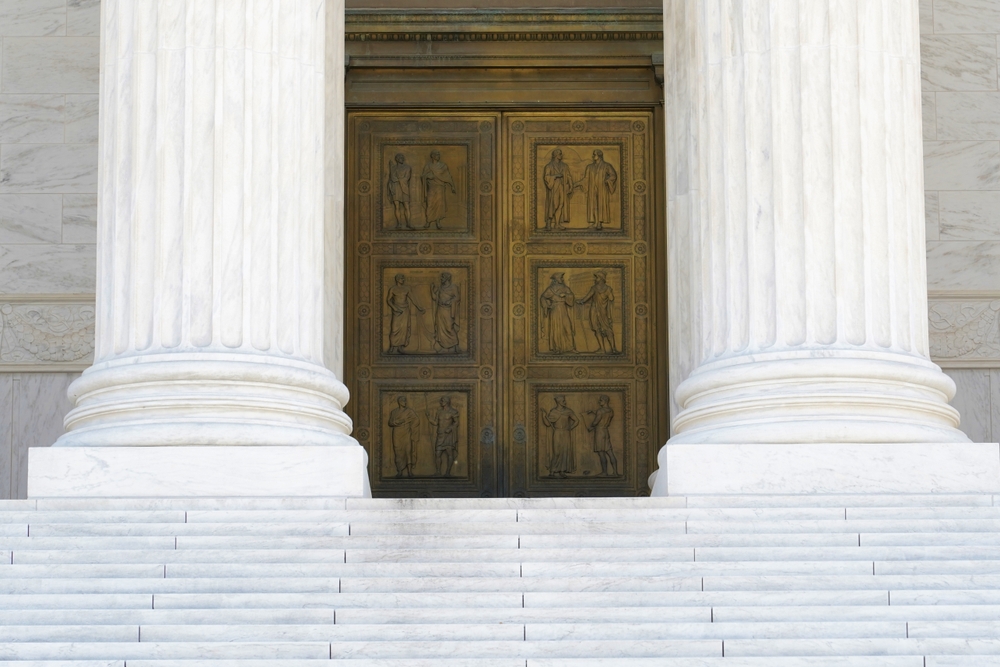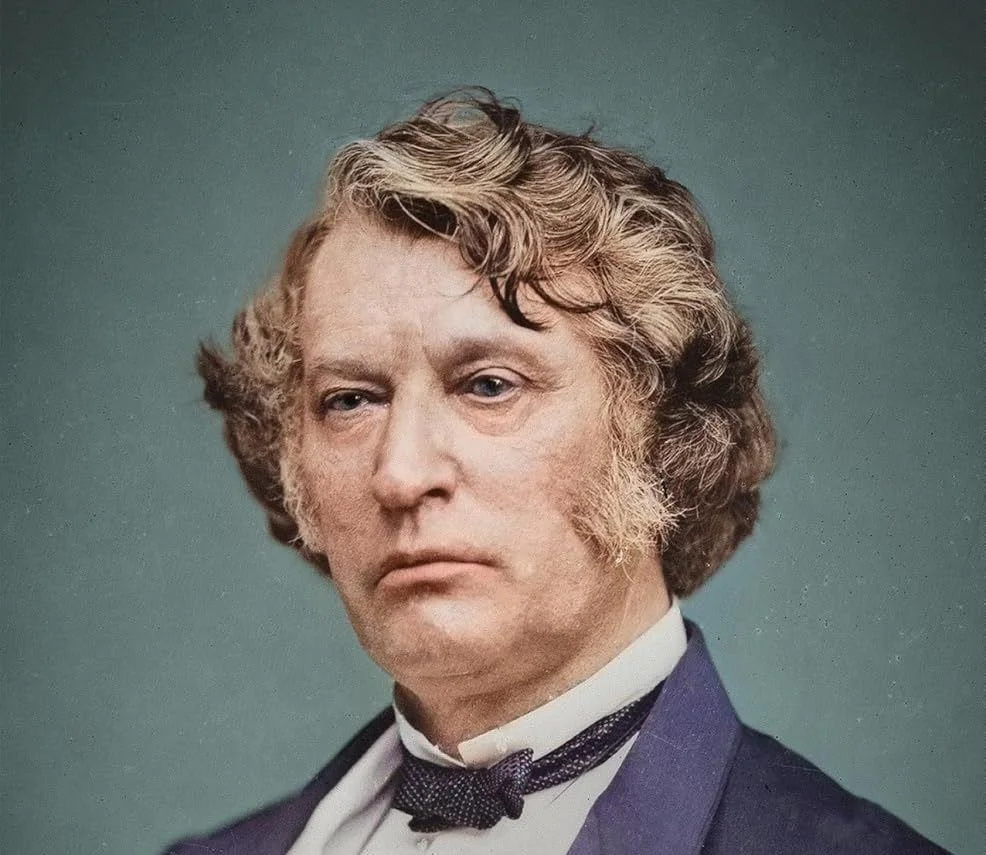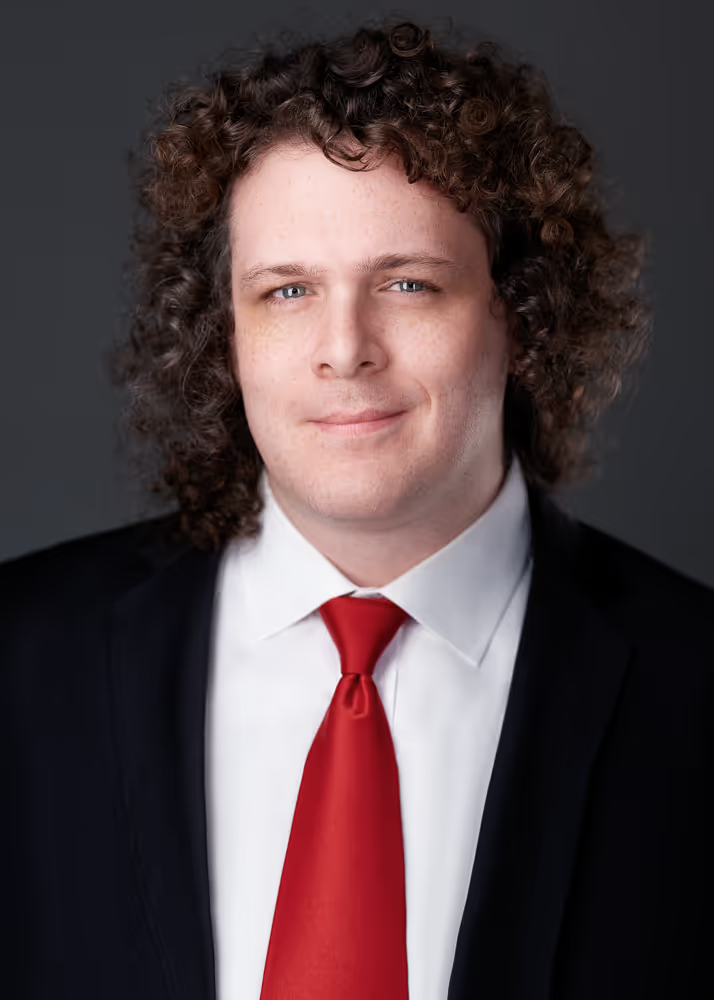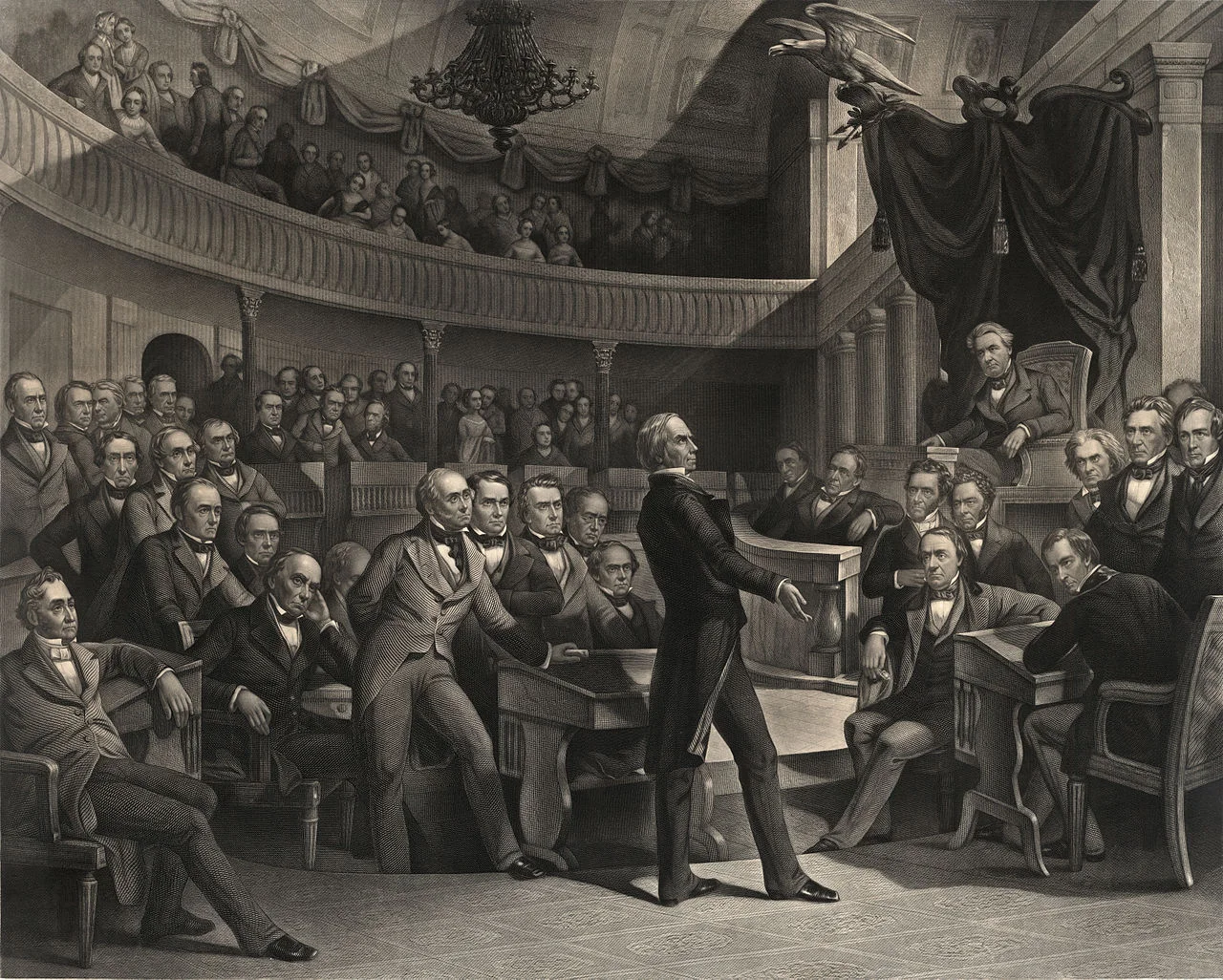.webp)
Judge Oldham's Olson Lecture: Yet Another FedSoc Debate or an Existential Challenge?
As the world around FedSoc changes, Judge Oldham calls for a reckoning with the Burkean instinct for tradition and its fear of venturing into the unknown.
The Federalist Society is an organization steeped in tradition. Since its inception, the structure of the prototypical FedSoc event has remained largely unchanged: speakers on opposite sides of an issue debate, allowing attendees to form their own opinions. And critically, Fedsoc “does not take positions on policy questions or particular issues.” If you walked into a FedSoc meeting in 1985, 1995, 2005, 2015, or 2025, things would look remarkably similar. To be sure, the particular legal issues of the day have ebbed and flowed, but FedSoc’s approach has not.
Yet, the world has changed significantly over the past four decades — and not just at the Supreme Court. The recent assassination of Charlie Kirk has brought this message home. Kirk would travel to college campuses across the country and debate pressing issues of concern — much like thousands of FedSoc speakers have done over the years. But someone decided that the way to answer Kirk’s debate was with a hunting rifle. Tragically, people glorified this murderer. Kirk’s assassination is not isolated. Another man decided to travel to New York to shoot a health care executive in cold blood. He became a social media celebrity. And we should not forget that a man traveled from California to Maryland with a bag full of weapons to murder Justice Brett Kavanaugh, and eliminate the fifth vote for Dobbs. A federal judge slapped this would-be assassin on the wrist because of President Trump.
Thankfully, assassinations are rare, but reputational assassinations are all too common. Speakers are routinely protested, cancelled, and ostracized for bringing controversial statements to campus. My colleague Ilya Shapiro has seen such outbursts far too often. And I have been on the receiving end of such protests.
The world of 2025 is different from the world of 1985. This change raises an inevitable question: Should the Federalist Society, the venerable debating society, also change? This was the theme of Judge Andrew S. Oldham’s remarks at the Barbara K. Olson Memorial Lecture. Judge Oldham’s speech challenges two FedSoc orthodoxies. First, he asks if the organization should remain, as it always was, a debating society. Second, he questions the merits of expanding the tent to attract more people. He rejects the “libertarian instinct to debate all things” and “focus[] on the big tent” as helping us “los[e] focus on the principles that motivated all of this in the first place.” Indeed, Oldham worries that “Big Tentism could turn FedSoc into a right-of-center bar association” where people come to “see and be seen.”
At the core of both challenges is Judge Oldham’s solemn commitment that originalism provides “clear and objective answers” and that originalists, including FedSoc, should do more to acknowledge those truths. And once the right answer is settled, Oldham would say, there is no reason to debate further. Instead, we should go forth and apply those principles.
This speech is consistent with Judge Oldham’s recent Story Lecture. (He has been busy of late.) The thrust of that speech was that lower courts do not need horizontal stare decisis because, in each case, judges are bound to “find the law.” That law could be found in prior circuit precedents, but if those circuit precedents deviate from “the law,” those rulings should not be binding. Again, Judge Oldham fervently believes that there is a right answer, that originalists can find that right answer, and then there is no point simply “debating for debate’s sake.” Indeed, Oldham thinks that platforming certain debaters, without settling on a “right” answer, amounts to “unprincipled legal relativism.” Oldham identifies an “asymmetrical” warfare: “One side of the debate is trying to play nice while the other side is playing for keeps.” Rather, Oldham would declare victory and move on, and not “pretend that all things are up for debate.”
I have three primary reactions to Oldham’s speech. First, committed originalists acting in good faith can reasonably disagree. I closely follow the decisions of the Fifth Circuit Court of Appeals, where Judge Oldham sits. I’ve lost count of how many times the court’s most prominent originalists, including the Trump appointees, disagree on a question of constitutional law. And, for better or worse, these distinguished jurists lob criticisms at their colleagues, charging fundamental errors. Judge Oldham has been on both the receiving and giving ends of these exchanges. These disagreements are not limited to the Fifth Circuit.
We see them quite frequently on the Supreme Court. There were even issues where Justices Scalia and Thomas disagreed. One of my favorite debates between these two titans came in Zivotofsky v. Kerry. I’m still not sure who was right about the law mandating that the President recognize Jerusalem as the capital of Israel. If judges were angels, perhaps they could find the law and determine the single correct answer. Alas, judges have robes, and not wings, and they certainly do not wear halos. If the Fifth Circuit is a microcosm for the conservative legal movement, the debate is not over.
Second, Oldham thinks that we should declare victory on controversial issues and move forward. I don’t think we are quite ready to declare that the debates we are having are concluded. Should we declare victory on Dobbs? New York and other blue states are actively resisting the decision by shielding the shipment of abortion drugs into red states. Tragically, the number of abortions nationwide has gone up in the wake of Dobbs. Should we declare victory on the Second Amendment? Barely a year after Bruen, all of the Justices not named Clarence walked it back in Rahimi. And the Supreme Court continues to deny certiorari on lower-court resistance to Bruen. Should we declare victory on affirmative action? Even though DEI is ostensibly dead, universities are still cheating on their admissions through subterfuges. Old habits die hard. Should we declare victory on administrative deference? It seems the D.C. Circuit is already finding ways to cite Chevron-era precedents to get around Loper Bright. Should we declare victory on originalism? Justice Kagan and others profess to be originalists, but I think – as Judge Oldham suggests – these admissions merely suggest the originalist tent is now as large as the Washington Hilton ballroom. What exactly did we prevail upon? And if we haven’t won, is Judge Oldham’s declaration premature?
My third reaction is predictive: assuming that there is a single originalist law that can be found, and that we have prevailed on establishing that one true meaning, what does FedSoc look like? Now this is a question I have given sustained thought to. In December 2024, I published a Civitas Outlook column titled “What is the Future of the Federalist Society?” I developed this piece while FedSoc was still searching for a new President. I made a similar observation to Judge Oldham’s: “For nearly half a century, FedSoc has followed the same playbook under the same leadership: a debating society that does not take any position on legal issues.” I also drew a direct linkage between debates of days-gone-by and present-day violence:
The metaphorical firing line has become an actual firing line for conservative lawyers. At the recent convention, Judge James C. Ho of the Fifth Circuit Court of Appeals argued that to FedSoc’s “critics, this isn’t a debate — it’s a war.” And if it is a war, the battle plans of days gone by may no longer work. Indeed, the society’s quaint mission statement has not been changed since the series finale of M*A*S*H.
I have long questioned what Oldham calls the “no-positions mantra.” I remarked that “Organizations that fail to innovate become punchlines.” The strategy for the first forty years is likely not the right strategy for the next forty years. Yet, I struggled with answering what comes next. I closed the piece with some uncertainty:
But I worry that the celebrated approach that worked to climb the sunrise side of the mountain may lead to its decline on the other side. What is that new approach? I do not know, and it should be, as is true to FedSoc’s core, a matter of debate. However, maintaining the status quo is not sustainable.
This hesitancy was uncharacteristic of my writing, but it was genuine. Likewise, I don’t think Judge Oldham quite knew how to end his speech either. The closest he came was with this sentence: “Perhaps it’s time to focus on applying these principles rather than debating them among ourselves.” Talking to some colleagues after, the reaction was the same: what specific things would Judge Oldham change? How exactly should FedSoc “apply” these principles? Perhaps Judge Oldham can lay out a bill of particulars in due course.
Ultimately, we are back to tradition. The easiest thing is to do that which was done before. This traditionalism is woven into our Burkean DNA. There is always a fear of venturing into the unknown, and abjuring that which has worked before. But I don’t think this cautiousness can handcuff us. Judge Oldham is trying to speak to a different generation. Students today have no living memory of Robert Bork, William Rehnquist, or September 11, among others. Current 1Ls never had to live in a world of Roe, Grutter, Lemon, and more. They may not understand why we have to debate issues they think are already settled — that is the thrust of Judge Oldham’s remarks.
We old-timers can do a better job of inculcating in the youth an appreciation of the bad old days. I convey this message whenever I talk about the Court to my students or those at other schools. However, this nostalgia can only last for so long. The FedSoc culture was established during a time when conservatism was in a defensive crouch. Now, we are on offense. What worked in 1985 may not work in 2025 and almost certainly won't work in 2065.
I’ll close by noting a certain irony. FedSoc chose to invite Judge Oldham to deliver the Olson lecture, likely without knowing what he would discuss. Judge Oldham walked to the podium and laid down what I see as an existential challenge to FedSoc’s core commitment to debate. But rather than settling that issue with a clear right-or-wrong answer, Judge Oldham instead started a new debate. And this will not be a debate for the sake of debating.
Josh Blackman holds the Centennial Chair of Constitutional Law at the South Texas College of Law Houston, is the Senior Editor of The Heritage Guide to the Constitution (Third Edition), and is a contributing editor to Civitas Outlook.
Constitutionalism

Amicus Brief: Hon. William P. Barr and Hon. Michael B. Mukasey in Support of Petitioners
Former AGs Barr and Mukasey Cite Civitas in a SCOTUS Brief

Rational Judicial Review: Constitutions as Power-sharing Agreements, Secession, and the Problem of Dred Scott
Judicial review and originalism serve as valuable commitment mechanisms to enforce future compliance with a political bargain.

Supreme Court showdown exposes shaky case against birthright citizenship
Supreme Court will hear challenges to Trump's order ending birthright citizenship, testing the 14th Amendment's guarantee for babies born in America.

Two Hails For The Chief’s NDA
Instead of trying to futilely plug the dam to stop leaks, the Court should release a safety valve.

Charles Sumner’s Harmony with the Declaration
Sumner used the Declaration to increase the Constitution’s pursuit of forming a more perfect union.


.avif)










.avif)



